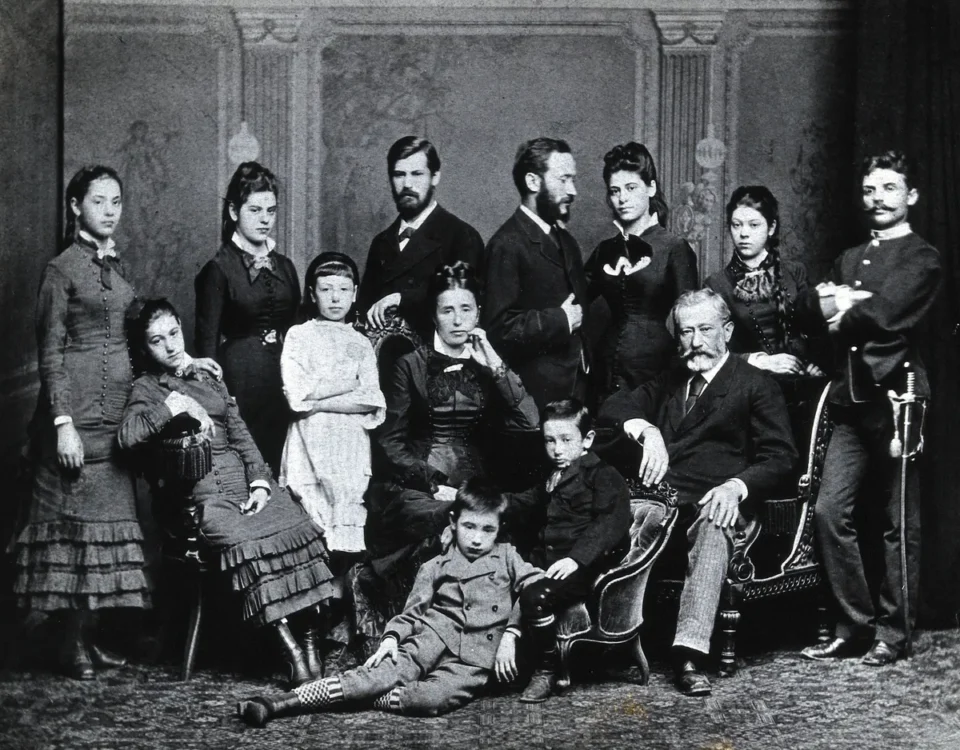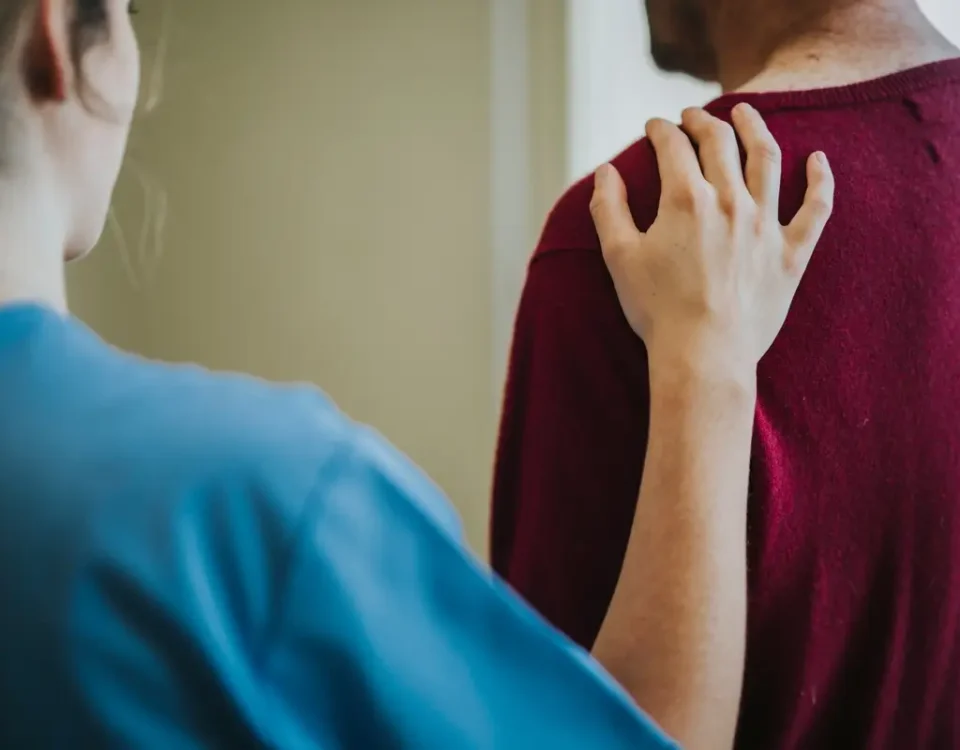
Transforming Healthcare Through Empathy, Collaboration, and Giving
April 8, 2025
Fit in Medicine: Mastering Physical Fitness for Medical Students and Doctors
April 10, 2025Summary (TL;DR)
The practice of history-taking sharpens problem-solving abilities and adaptability, teaching students to think quickly and critically. Constructively handling criticism becomes second nature, fostering emotional resilience that applies to all areas of life. Achievements throughout medical training boost self-esteem and confidence, reminding students of their capabilities. Self-reflection plays a crucial role in managing limitations and promoting continuous improvement, while enhanced communication and empathy improve both patient care and personal relationships.
Pursuing hobbies and passions outside medicine keeps students grounded and relatable, countering the intensity of their studies. Embracing imperfections and focusing on progress helps reduce impostor syndrome, allowing students to grow without undue self-doubt. Finally, motivations such as helping others, intellectual curiosity, and a commitment to service fuel a deep passion for the field, reinforcing the purpose and fulfillment that medicine brings.
Medical school is more than just an academic journey—it’s a transformative experience that shapes every aspect of your life. From improving personal habits to fostering resilience, empathy, and self-awareness, the lessons learned in medical school extend far beyond the classroom or hospital walls. This article dives deep into how medical school can enhance your personal and professional life, helping you embrace limitations, develop critical skills, and rediscover your passions along the way.
The Ability to Lead a Healthier Lifestyle
It’s no secret that being in medical school can inspire you to lead a healthier lifestyle. Whether you actually do is a bit more contentious (hello stress, 4 hours of sleep, and a caffeine addiction), but on the whole, knowing all of the small lifestyle adjustments that can improve your health really does help you lead a healthier lifestyle. Of course, there are the obvious things, like knowing how bad vaping is and avoiding vaping, and the importance of staying up-to-date on your immunizations, but medical school has also taught me a lot of smaller things that also help make my life just that little bit better. For instance, I often have cracked skin on my hands due to the constant hand-washing and my distaste for ointments that made my hands greasy and left oily marks everywhere. However, thanks to some dermatology lectures, I discovered creams (which I did not previously know were different to ointments), and now I have baby-soft hands.
In addition to practical knowledge, medical school encourages students to prioritize their physical and mental well-being. As Richard Zhang notes, “There is simply not enough time in medical school to become proficient at absolutely everything,” which means learning to take care of yourself becomes essential. Balancing the demands of medical training with personal health isn’t easy, but it’s a skill that pays dividends throughout your career and personal life.
Faster Thinking and Problem-Solving Skills
One of the most significant changes I experienced in medical school was developing faster thinking and problem-solving skills. The biggest shock I encountered was history-taking. From the very first moment the patient introduces themselves, you’re looking and listening for clues that may help you form a diagnosis. At the same time, you’re thinking of a list of differentials and coming up with all the questions you need to ask to rule in/rule out a certain pathology. And all of this has to happen in around 7 minutes. While this does eventually become second-nature, first learning how to take histories was very challenging and really helped develop my problem-solving skills and my ability to think on my feet.
These skills don’t just apply to clinical settings—they translate into everyday decision-making. Paula Danika A. Binsol echoes this sentiment when she talks about managing multiple responsibilities outside of academics. “The more we do, the better we get at managing time,” she writes, highlighting how juggling hobbies, extracurriculars, and studies fosters efficiency and adaptability.
Taking Criticism in Stride
If you can handle an attending yelling at you non-stop for an entire teaching session or the scrub tech yelling at you for accidentally brushing against something non-sterile, you can handle any kind of criticism everyday life can throw at you. Case in point, the other day a small child pointed at my feet and said, “Your shoes aren’t pink and cute,” and while that level of criticism would have made me cry before starting medical school, I was able to brush it off and reply, “Your light-up shoes aren’t that cool,” so shout out to medical school for helping me get the upper hand on that 4-year-old.
Coping with criticism is a crucial part of medical education. As Richard Zhang explains, “It’s not a secret that you will receive a lot of criticism throughout medical school.” There are simply too many demanding skills you have to become proficient at and too many factoids you have to learn. It is humanly impossible to nail all those skills or know every fact immediately, and as a result, you will be criticized. Learning to separate constructive feedback from harshness is key to growing both personally and professionally.

Increased Confidence Through Achievement
The things you do in medical school are honestly very impressive. You know a million different important facts about health and the human body; you can gather enough information from a patient coming to you with vague and obscure symptoms to form a diagnosis; and you can do a fair few impressive procedural skills, like successfully cannulating on the first attempt… occasionally. All of those things should be real self-esteem and confidence boosters.
Confidence grows naturally as you overcome challenges and achieve milestones. For many students, this newfound assurance extends beyond medicine. Binsol reflects on her own journey, saying, “I never thought I’d finally get to discovering myself in medical school, but I’m certainly glad I did.” Embracing accomplishments, no matter how small, helps build a foundation of self-belief that serves you well in all areas of life.
Self-Reflection: A Path to Growth
A big part of medical school for me was self-reflection. Not only did our medical school demand reflections at the end of almost every assignment, but it’s also something you have to do whenever your own limitations get obviously and painfully pointed out to you. And that increased capacity for self-reflection has also helped me become just a little more zen in my own personal life. To use an example from before, I may have felt guilty about dunking on a four-year-old in the past, but my ability to reflect has really helped allow me to come to terms with what I did.
Continuous reflection is one of the best learning tools any medical student can have in their arsenal. When you first learn to play a sport or an instrument, your coach or tutor is always by your side observing and fixing any errors you make until you master the technique. It’s the same for medicine, only you will have to be your own coach. Reflecting on the things you can improve upon and the skills you can continue to develop is how you improve. Consider keeping a journal of examinations where you missed the pertinent signs, or a record of the information you forgot to give when calling a consult, and regularly revisit these previous mistakes to ensure you don’t make them again in the future.
Improved Communication and Empathy
This is something you just pick up from taking hundreds and hundreds of histories. And over time, it’s something that begins to creep more and more into your own everyday life. Sometimes, eventually, you begin to start being actually nice to your friends (?!), and they start to pick up on it. This useful skill from medical school has ultimately allowed me to develop better, healthier relationships with my friends, and I’m sure it can do the same for you.
Improved communication and empathy aren’t just beneficial in patient interactions—they strengthen personal relationships too. Engaging in active listening and showing genuine concern helps others feel valued and understood. Binsol emphasizes this point, stating, “Sharing your interests makes you more relatable and helps you build rapport.” Whether discussing hobbies or sharing experiences, effective communication bridges gaps and fosters connection.
Embracing Limitations and Learning from Feedback
There is such a vast body of medical knowledge and research that we simply cannot remain up-to-date on every single little detail of every pathology or drug or novel treatment strategy, no matter how much time and effort we put into learning and memorizing absolutely every medical factoid we come across. Now pile onto that the fact that we must also become proficient in dozens of procedural skills and sensitively communicating with patients, and you can probably see it just isn’t impossible to become flawless, perfect doctors in our short time in medical school.
Embracing limitations doesn’t mean accepting mediocrity—it means recognizing areas for improvement and seeking ways to grow. Feedback is one of the most important learning tools you will ever get in medical school. Realistically, when it comes to simply learning facts for your board exams, you could probably study that entirely on your own or by using one of the many preparation courses available (we recommend Physeo, of course). However, when it comes to procedural skills, such as eliciting signs on a physical examination or collecting blood for venipuncture, or communication skills, such as taking a history, there really is no substitute for learning by doing. The only way to improve these skills is to continue practicing and learning from the feedback you get given, whether it’s from your intern observing your blood draw, or from the simulated patient you just took the history from.

Dealing with Impostor Syndrome
Impostor syndrome is something almost every medical professional deals with at some point in their career. It’s understandable too—as a doctor, you will be making crucial choices that directly impact the safety and wellbeing of others, which is not a responsibility to take lightly. Add on to that the fact that you will be surrounded by colleagues who will seem exceptional and in control of every situation thrown at them, and you can see why so many people feel as though they don’t fit in with their apparently overqualified peers, especially when their own limitations are constantly being pointed out to them.
Overcoming impostor syndrome requires acknowledging your achievements and trusting in your abilities. Remembering the hard work it took to reach where you are today can provide reassurance during moments of doubt. “Everybody is fighting an uphill battle in medical school,” Zhang reminds us. “Doubting yourself and being afraid of imperfection will only make medical school more difficult for yourself.”
Maintaining Passion Outside of Medicine
Are you ready? You’re giving up your prime. Signing away your life. No fun, no social life, no love life. Study on repeat for the next four years. These snide comments poured in as soon as I shared that I had been accepted to medical school. What made it more annoying was that much of it came from the very people that inspired me to go into medicine in the first place. But I wasn’t convinced. All the doctors I had met in my lifetime had tons of hobbies—many played sports, many had a group of friends they enjoyed exploring restaurants with, others enjoyed traveling or outdoor adventures—and even more than that, some told stories of entering medical school as singles ready to mingle and graduating with new last names and children in tow!
Maintaining passions outside of medicine is vital for sustaining joy and fulfillment. Hobbies remind us of who we are beyond our professional roles. Binsol shares her perspective: “The things you enjoy remind you of who you are. On the outside, I have to be a professional, knowledgeable, and competent physician; and while I love that part of me, there are days that it sometimes feels more like a burden than a dream. But sitting down at the piano, or talking to my friends about my new favorite pen, or shopping for my new planner remind me that I’m just a big dweeb in a white coat.”
Why Did You Want to Be a Doctor, Anyway?
Why'd you want to be a doctor, anyway? It’s a question I recently revisited after sharing my struggles applying to medical school. My response boiled down to five core reasons:
- I Want to Help People: No matter where I’ve been in the world, whenever I’ve asked a doctor about their desire to become a physician, this reason always makes the list. Medicine offers a unique opportunity to serve humanity in countless ways—as clinicians, researchers, educators, or advocates.
- I Love Service: Acts of service come naturally to me. In clerkship year, I realized that running errands for patients or speaking with families brought meaning to my work. These small acts made the overwhelming stress of medicine bearable and reaffirmed my calling.
- Medicine Is Bigger Than Self: Much of what we do as physicians transcends individual goals. Studying anatomy wasn’t just about grades—it was about preparing to save lives. That realization scared me and awed me simultaneously.
- I Enjoy Intellectual Inquiry: Lifelong learning is a cornerstone of medicine. Constantly challenging my brain with new knowledge excites me. Progress in medicine is relentless, and I thrive on contributing to it.
- I Couldn’t Imagine Doing Anything Else: Ultimately, medicine aligns perfectly with who I am and what I value. It’s not just a career choice—it’s a passion.

Topic FAQs
Call-to-Action (CTA): Elevate Your Medical Journey with Physeo
Are you ready to take your medical school journey to the next level? At Physeo, we’re here to help you succeed with our comprehensive video resources, conceptual breakdowns, and image mnemonics designed specifically for Step 1 and Step 2 preparation. Whether you're looking to ace your exams, deepen your understanding of complex topics, or stay inspired during the challenging times in medical school, Physeo has got you covered.
Why Choose Physeo?
Don’t let the demands of medical school overwhelm you—equip yourself with the tools that make learning efficient, effective, and even enjoyable.
Check Out Plans TodayJoin thousands of students who have transformed their study routines and achieved success with Physeo!
Stay Inspired with Our Blog
For more tips, insights, and stories to keep you motivated throughout your medical career, check out our blog at blog.physeo.com.
Invest in Yourself, Invest in Your Future
Start your Physeo journey now and take the first step toward success in medical school and beyond. 🚀
Start Your Journey NowAuthor
Richard Zhang and Paula Danika A. Binsol
Content Creators
Latest articles
Our newsletter
- Work-Life Balance
- USMLE Prep
- Study Tools
- Stress Management
- Spaced Repetition
- Residency Applications
- Physeo
- Personal Growth
- Pathology Education
- OB/GYN Specialty
- Nutrition
- Neuroscience
- Mental Health
- Medical School Tips
- Healthcare Innovation
- Global Health
- Fitness & Wellness
- Faith & Medicine
- Doctor-Patient Relationships
- Creativity in Science
- Career Planning
- Anatomy Mastery










